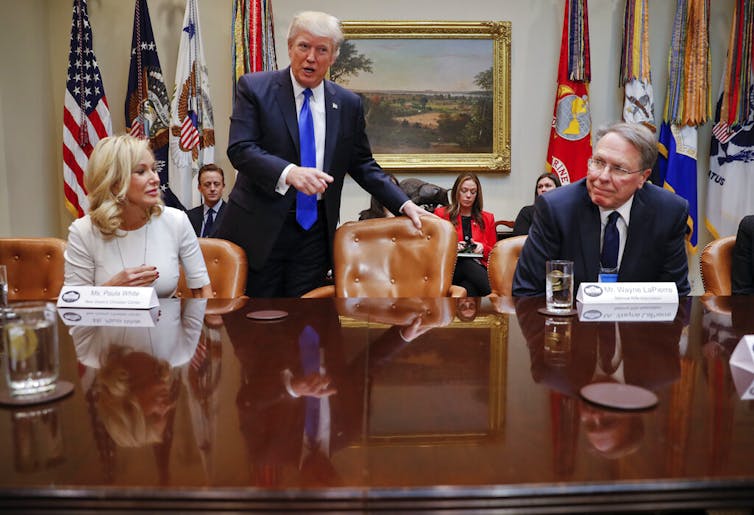Losing interest in the culture war
Many of the younger evangelicals in my study stated that their stances on culture war issues were significantly different from the evangelical majority of the past 50 years, which aligns with the findings of a 2017 Pew Research Center poll. This survey found that younger generations of millennials are more liberal than older evangelicals on numerous political issues.
My interviewees cited an acceptance and welcoming of those who identify as LGBTQ into their communities as both members and leaders. They support and ally with the objectives of the #BlackLivesMatter movement. In sum, they are actively dismantling many of the insider/outsider distinctions established by older white evangelicals and transforming what it means to be a politically engaged evangelical in America.
Furthermore, many of the people that I spoke with cited a culture war fatigue. Some believe that evangelicalism’s multi-decade investment in campaigning for these conservative stances and alliance with the Republican Party actually harmed the evangelical tradition instead of empowering it, while others are simply trying to opt out of the culture war and focus on their faith instead.
Pablo Martinez Monsivais/AP
Interviewees also told me that often their views are creating familial conflict, since their parents and grandparents cannot understand why any evangelical would not be committed to the older generations’ conservative political causes.
Political conversion
Research to date, including my own, has yet to measure how widespread these shifts of attitude and belief among young white evangelicals may be. But there is other evidence of internal unraveling.
Take a recent announcement by Beth Moore, an influential evangelical speaker and author, that she has decided to leave the Southern Baptist Convention – the largest evangelical group in the U.S. – and end her relationship with a prominent evangelical publisher.
Or consider former Southern Baptist Theological Seminary president and pastor Russell Moore’s recent departure from the Southern Baptist Convention’s leadership, amid leaked communications over the denomination’s handling of racial issues. These developments indicate a growing internal struggle over who can legitimately claim authority for the evangelical tradition.
The last several decades of American politics have been dominated by culture war issues, with white evangelicals in positions of national power. But as my research is documenting, a political transformation seems to be underway. With younger, white evangelicals rethinking their alliances and continued participation in the culture wars, it is possible that conservative politicians may not be able to count on white evangelical support for much longer.
This could have broader implications for the American political landscape. Without evangelical support and influence, the issues that are often at center stage could drastically change.
Editor’s note: This article has been updated to clarify Supreme Court Justice Amy Coney Barrett’s faith as a conservative Christian.![]()
Terry Shoemaker, Lecturer, School of Historical, Philosophical and Religious Studies, Arizona State University
This article is republished from The Conversation under a Creative Commons license. Read the original article.












